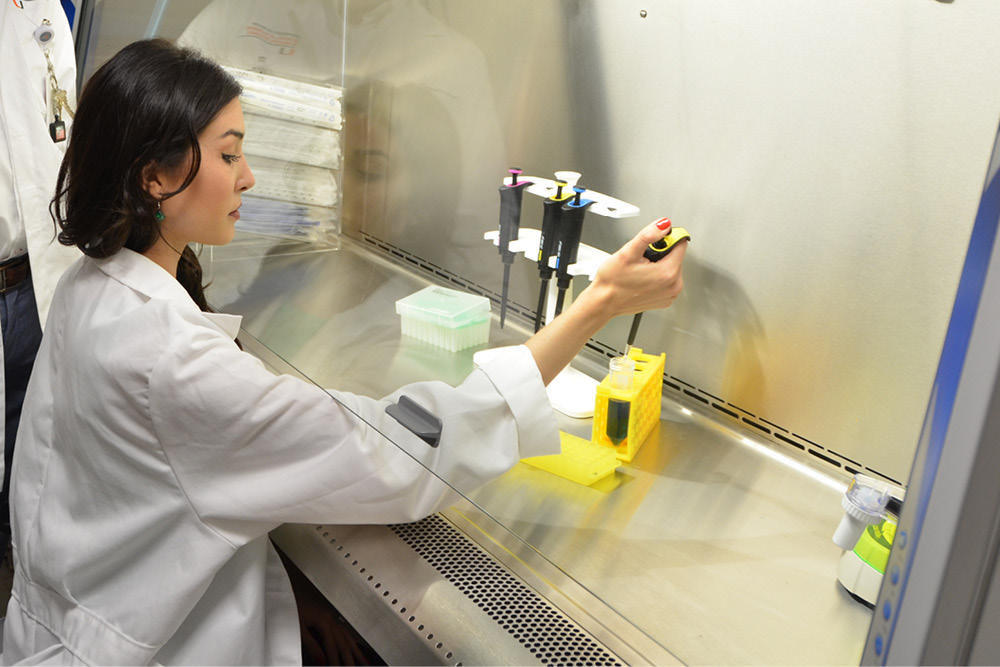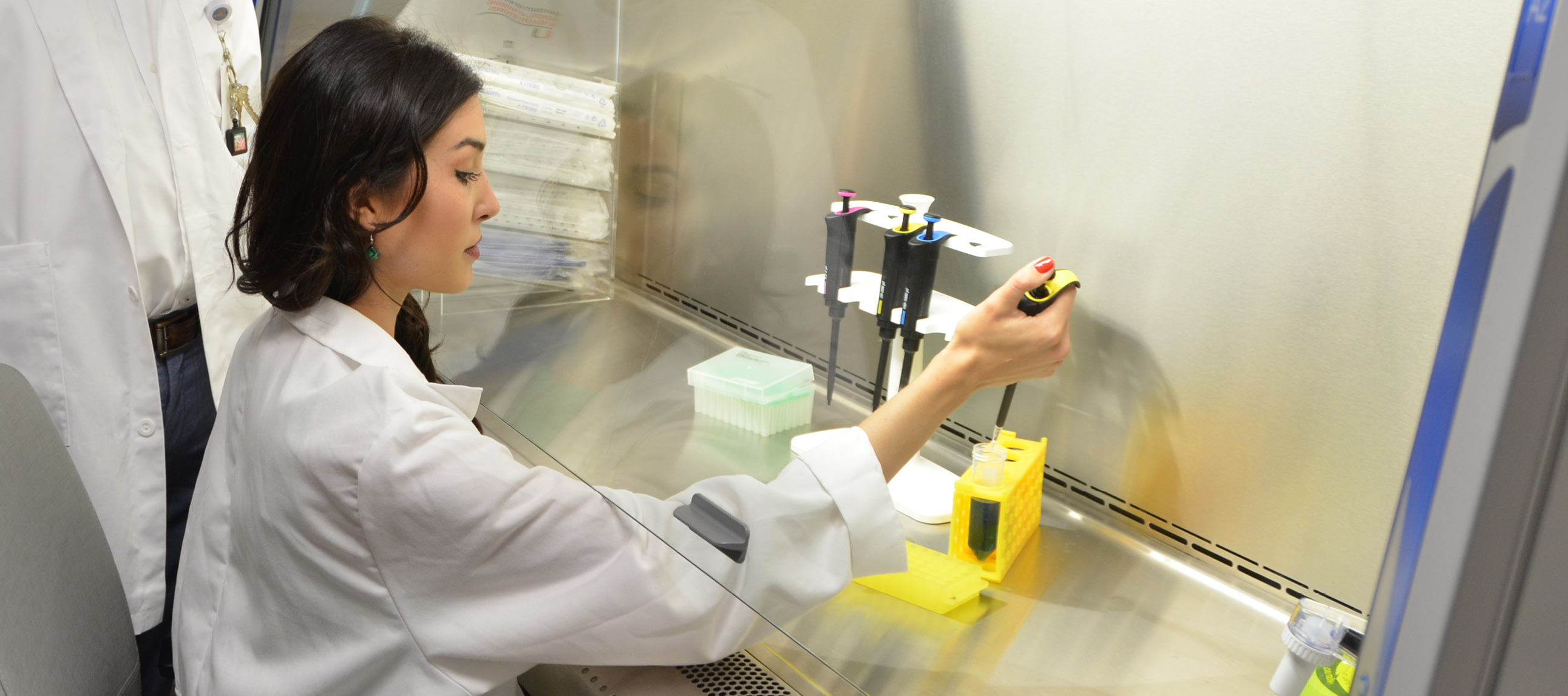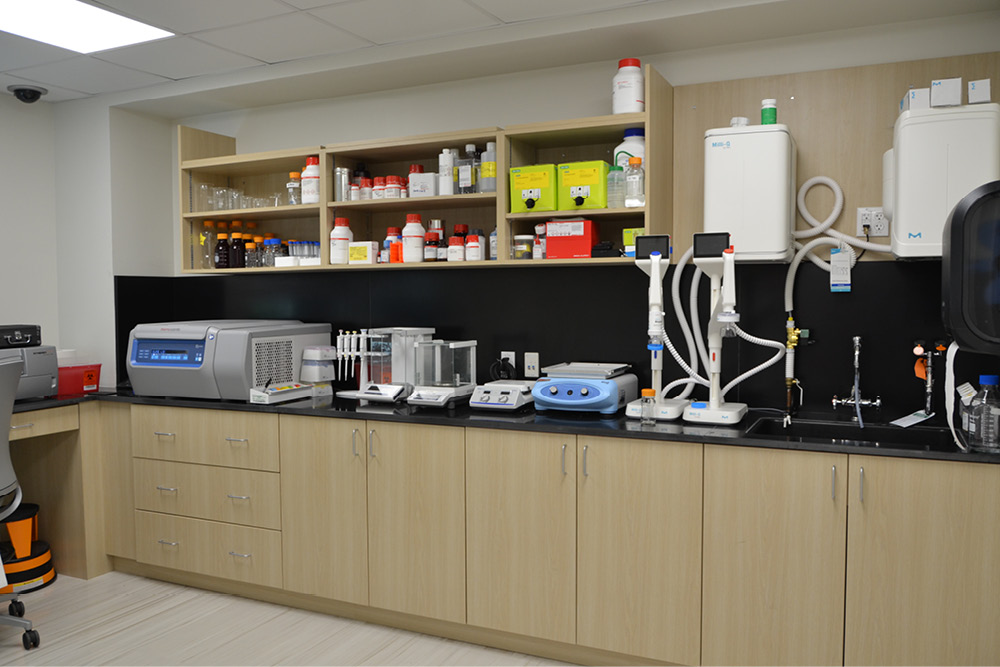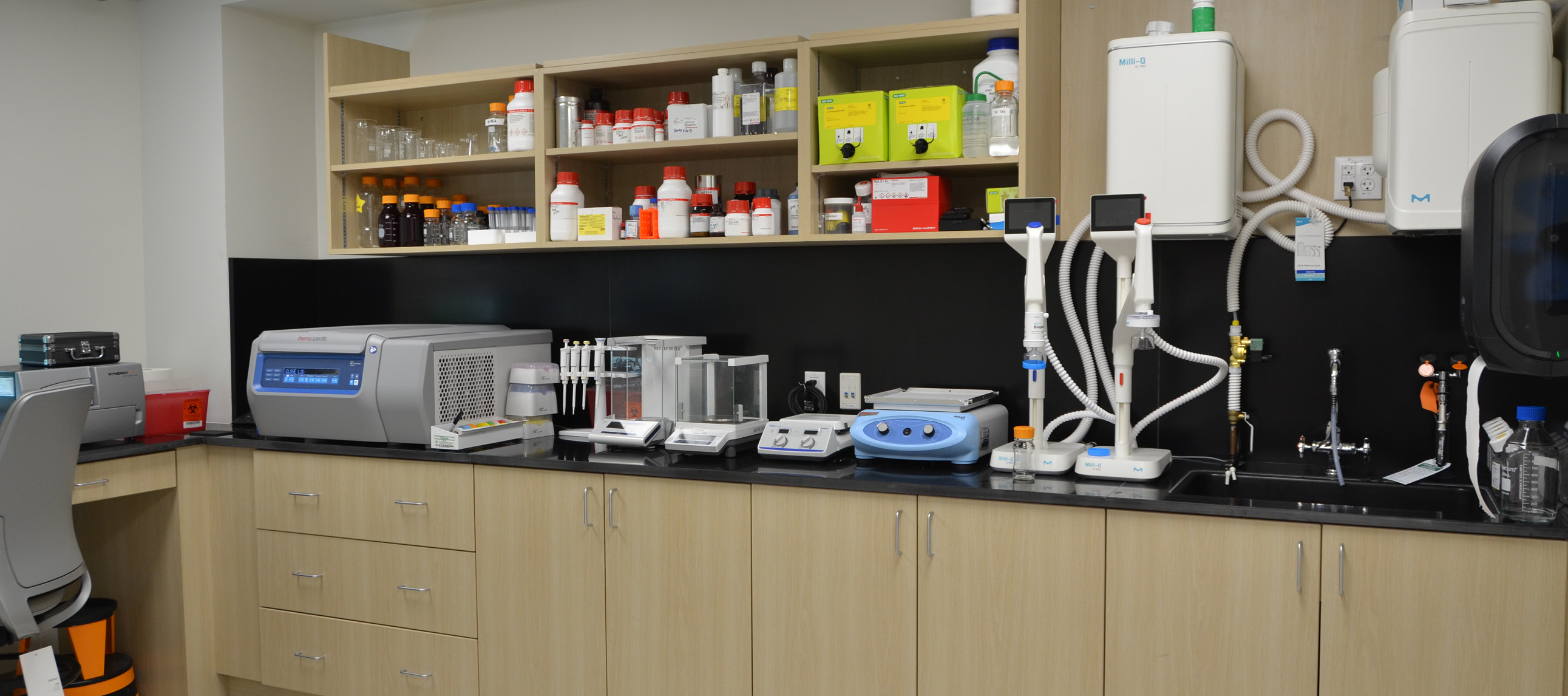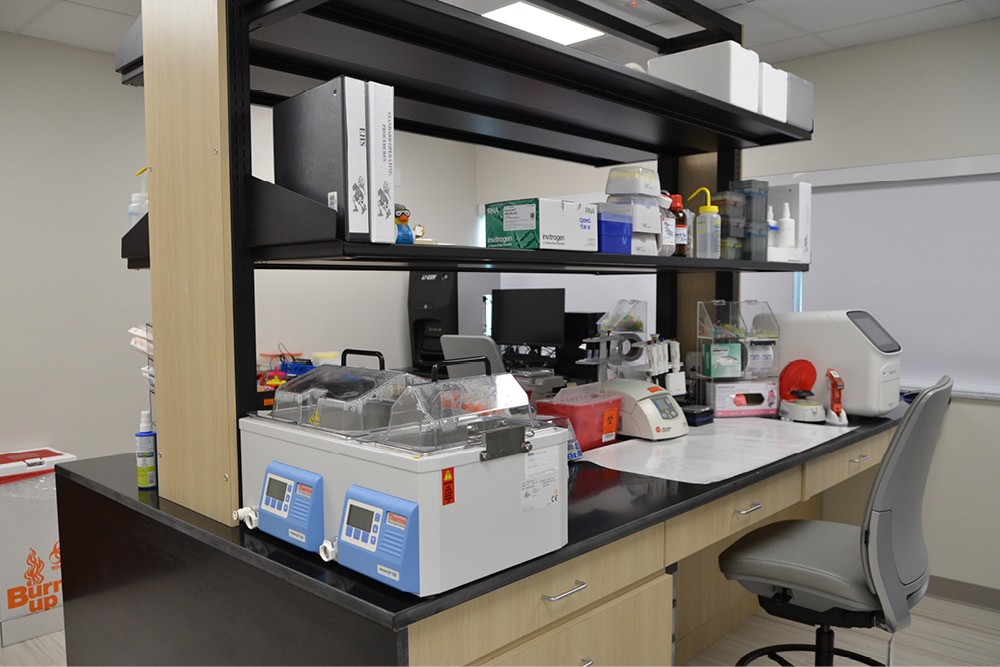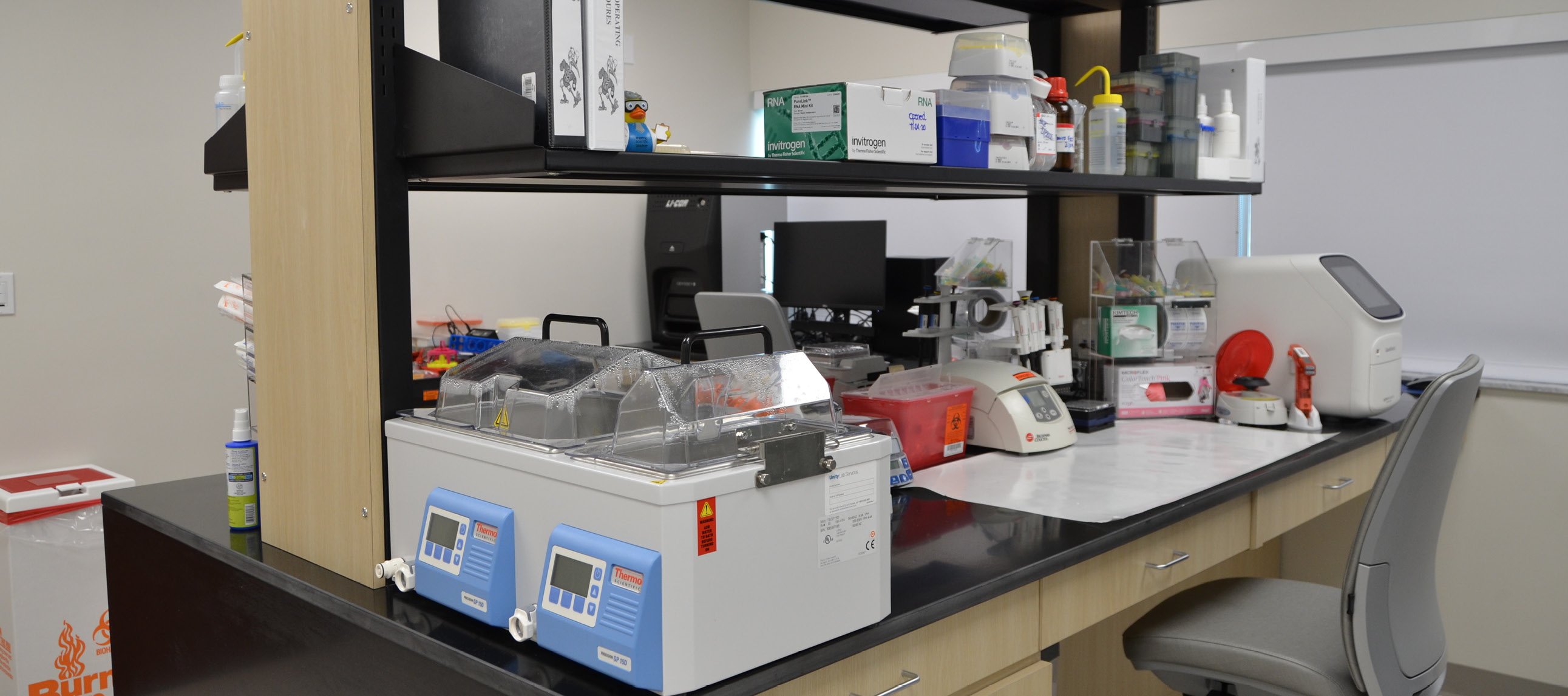The lab is an important addition to the school’s Biobehavioral Technology Core, which is dedicated to exploring how biology at the cellular and genetic level interacts with behavioral and environmental factors on a range of health issues across the lifespan.
Located on the third floor of the M. Christine Schwartz Center for Nursing and Health Studies, the SONHS Biobehavioral Research Laboratory is available to faculty and student investigators interested in incorporating biological measures into their work.
Here, investigators can perform research across the continuum—from preclinical students to translation. They can test biomarkers, perform cell and bacterial cultures, study phenomena using preclinical models, work with human subjects, and much more. The lab is also well-equipped for conducting blood assays, determining gene expression, genotyping, and measurement of telomere length, as well as assessment of redox indicators and proteomics.
“I was blown away by the lab,” says Sameena Sheikh-Wu, B.S.N. ’15, a PhD student at SONHS investigating symptoms and quality of life experienced by cancer survivors. “Students will have the ability to gain more skills and knowledge that lead to advancements in symptom science research.”



